Mis queridos amigos de Cocina Creativa. Preparé los famosos chipás, un pancito redondo que comí por primera vez acá en Argentina. Son deliciosos, por lo cual tienen mucha demanda. Es más, no hay un lugar donde falten; en parques, veredas, locales comerciales, kioscos, hasta dentro del Subte, están a disposición de los que deseen merendar.
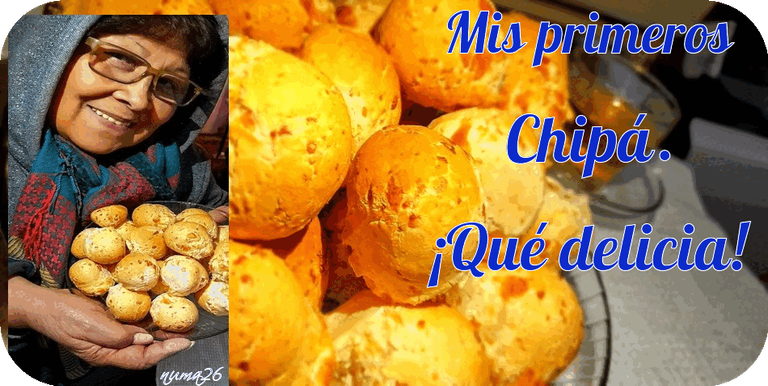
Los chipás son unas bolitas hechas con harina de mandioca o yuca, originarias de Paraguay, pero en Argentina también se consumen regularmente. Cada país le da su toque personal.
El nombre de chipá, es de origen guaraní. Se dice que los guaraníes, antiguamente, preparaban la masa de mandioca, sin otros ingredientes que no fuera la mandioca.
Era tan solo un pan, que elaboraban los indígenas guaraníes rallando la mandioca cruda, que se cocinaba envuelto en hojas de güembé (maíz) pero que cuando llegaron los europeos, se le fue agregando la mantequilla, el queso y los huevos. Así que hubo una fusión interesante, pues lo que surgió de allí, fue un delicioso pancito, que por su sabor se ha hecho famoso y muy solicitado.
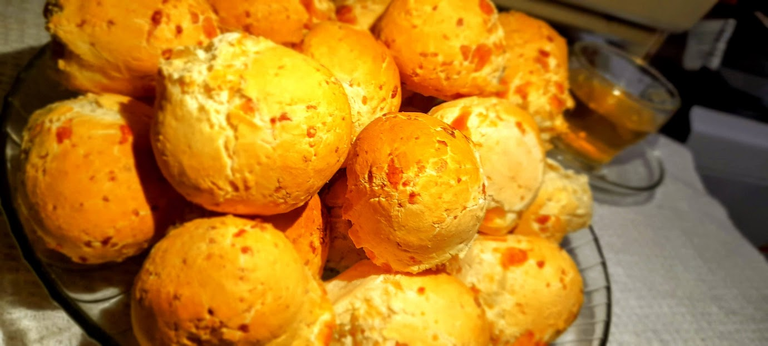
Preparación del Chipá
Ingredientes:
250 g de yuca
2 cucharadas de mantequilla
200 g de queso (amarillo, parmesano o cualquier otro)
3 huevos
Sal al gusto.
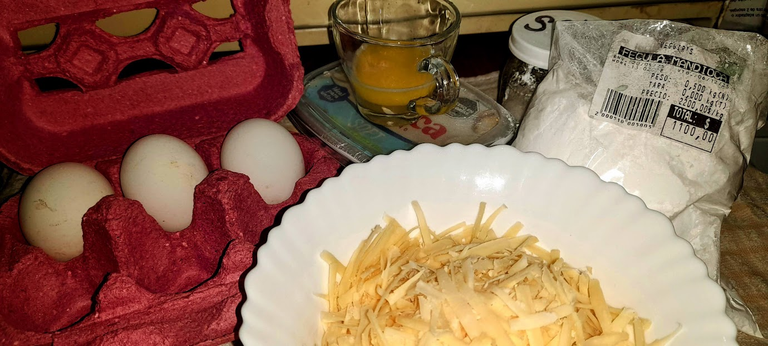
La elaboración del chipá es tan sencilla, que no requiere, sino mezclar, amasar, moldear, hornear y finalmente, degustar. En esta oportunidad, las he preparado en mi Freidora de aire. Tal y como dice la portada, será la primera vez que preparo estas deliciosas bolitas de masa de fécula de mandioca o yuca.
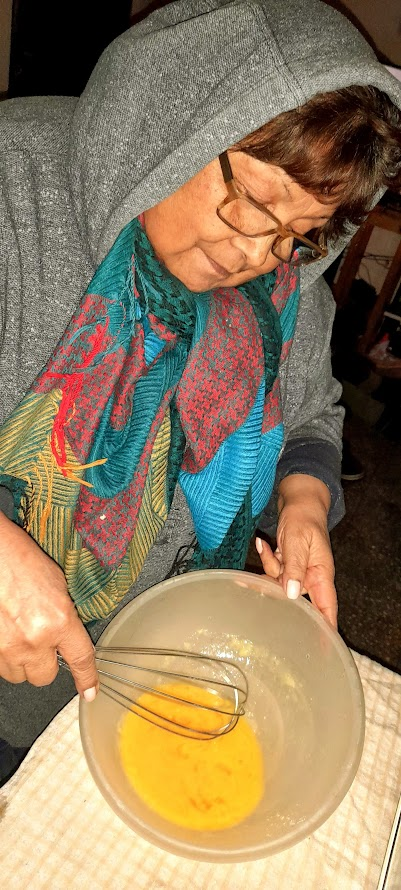
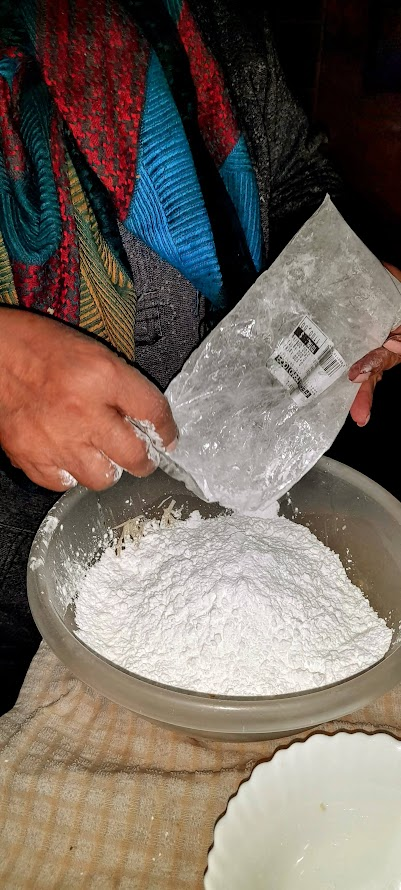
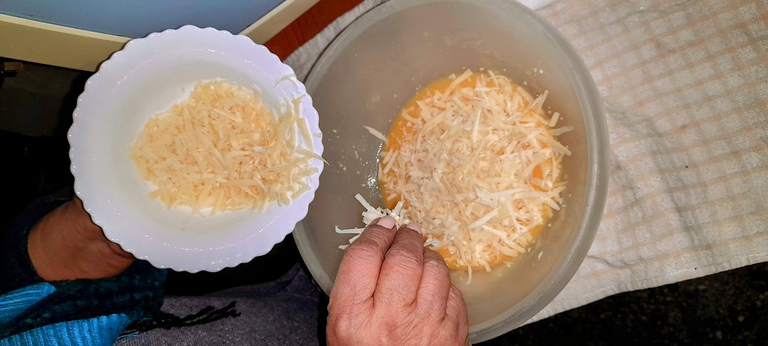
Entonces se hacen las bolitas. En este caso salieron 24 porciones
Las bolitas no deben hacerse muy grandes porque ellas crecen al hornearse.
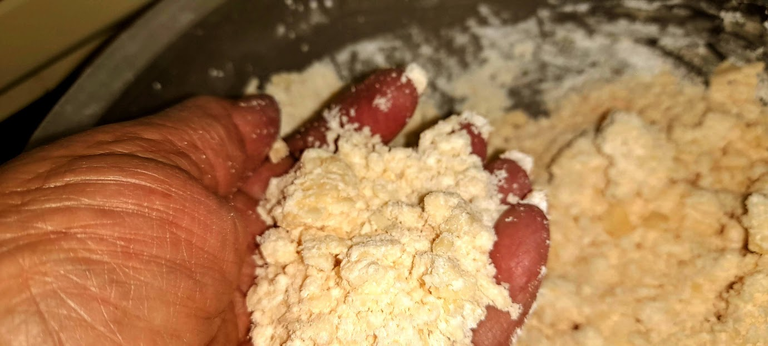
Cómo les indiqué al principio, las iba a cocinar en la freidora de aire. El tiempo fue de 15 minutos y la temperatura de 180 grados.
Como pueden ver, es una receta sencilla de elaborar y realmente vale la pena porque los chipás, tienen un sabor, que si nos descuidamos podemos acabar con todas de un solo envión.
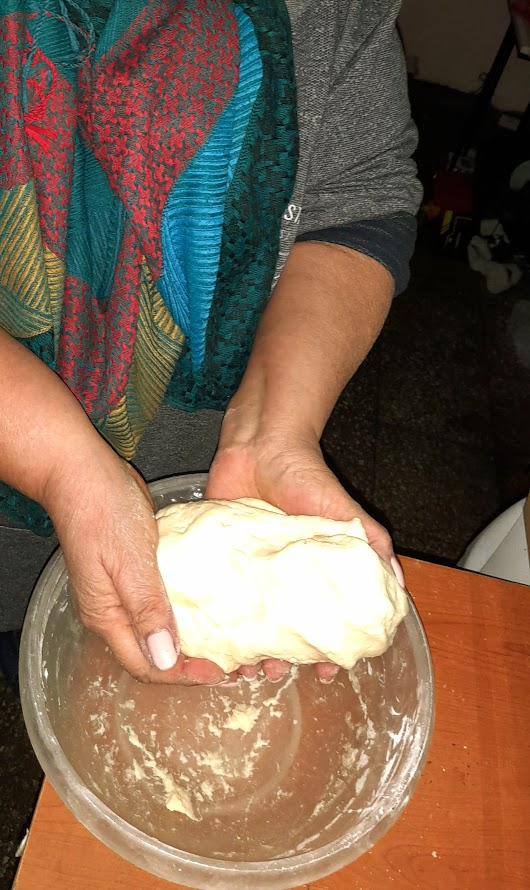
You can eat them with confidence, knowing that gluten won't make you sick. People with diabetes can eat them, and they don't alter triglycerides. So my recommendation is not to overdo it, because that's where the danger lies. They're addictive, I'm warning you.
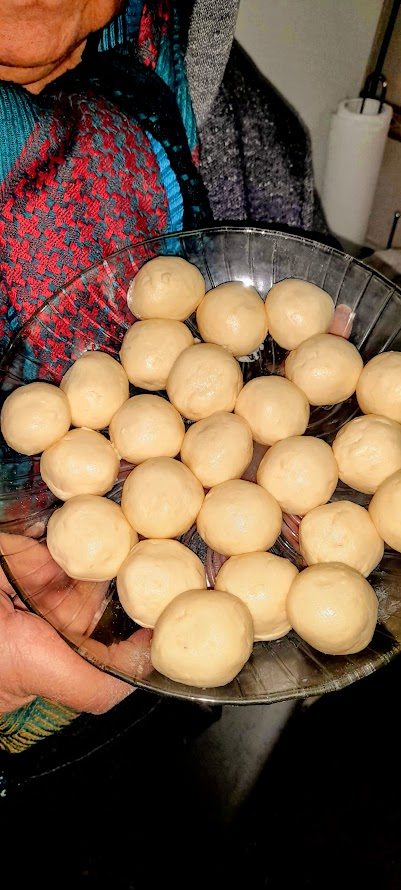
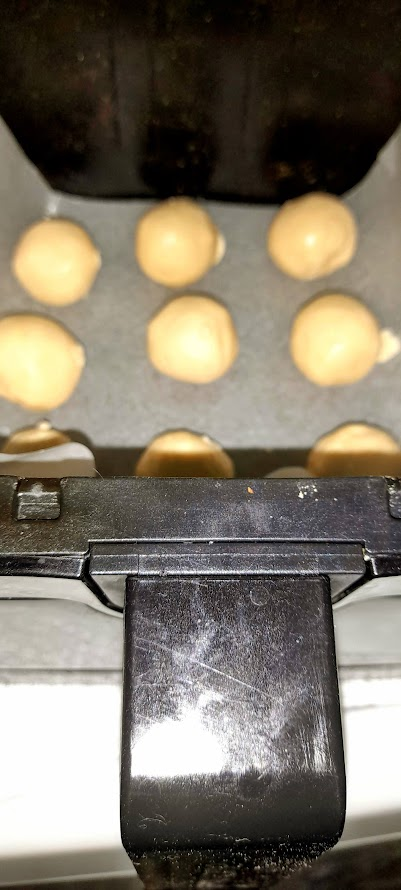
Espero sepan replicar esta receta tan sencilla, pues su sencillez permite poder comerla más seguido. Prueben hacerlas y verán. Solo cuatro ingredientes. Así como yo las hice en la freidora de aire, ustedes también la pueden preparar en cualquier horno, y con los mismos tiempos de cocción.
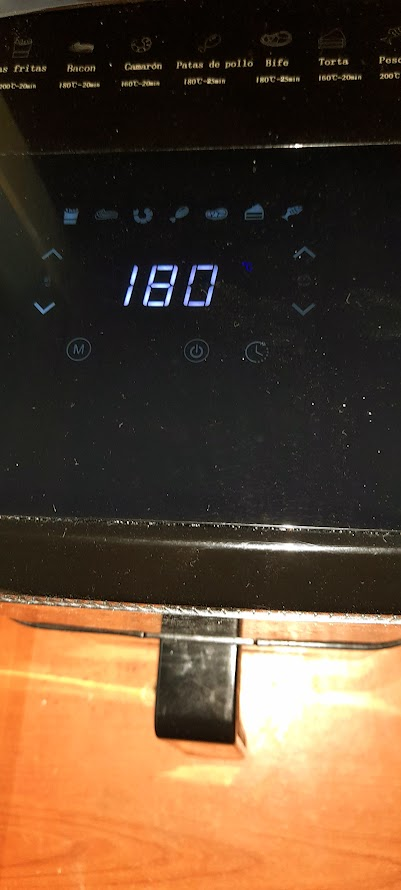
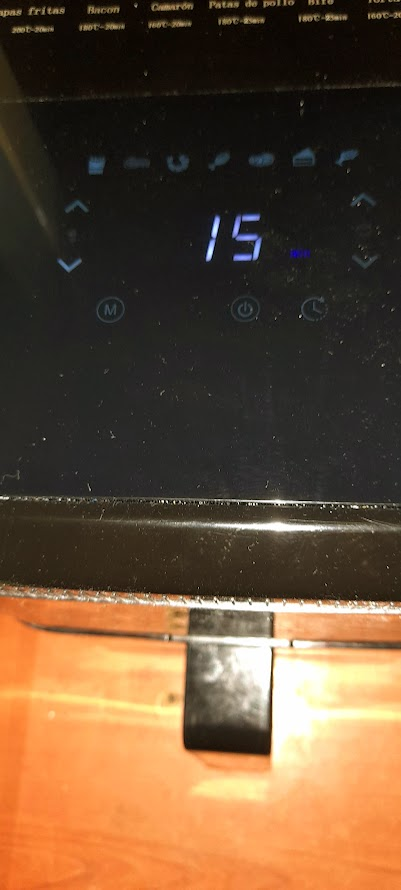
En la imagen anterior podemos ver desde afuera, cuando ya, los chipás están listos. En cada horneada se pudo colocar nueve chipás, porque si colocaba más, posiblemente se pegarían unos de otros. Debemos tomar en cuenta también la medida de las bolitas de masa. Deberían ser pequeñas.

Ahora les presento mi cosecha. Se ve que logré mi propósito. Comer unas chipás sin culpa, Me enantaría que los que están leyendo esta receta, pudieran probalral. Sé que les van a enamorar.
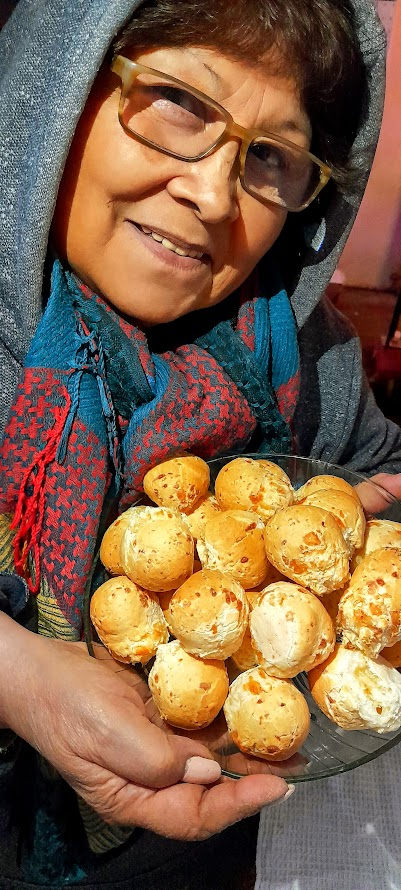
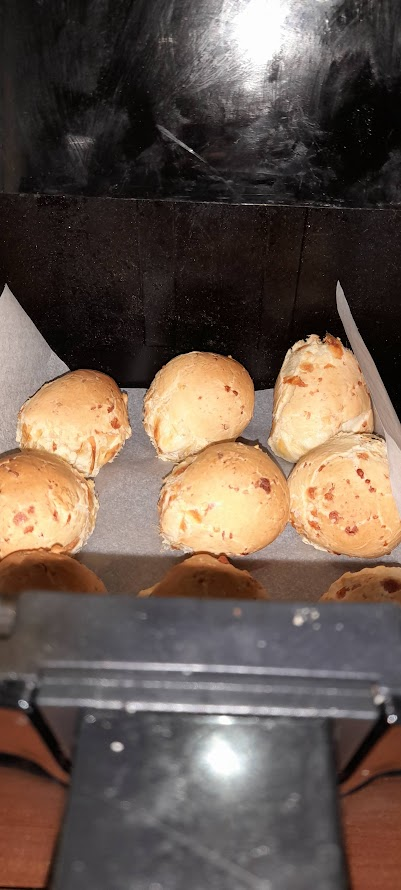
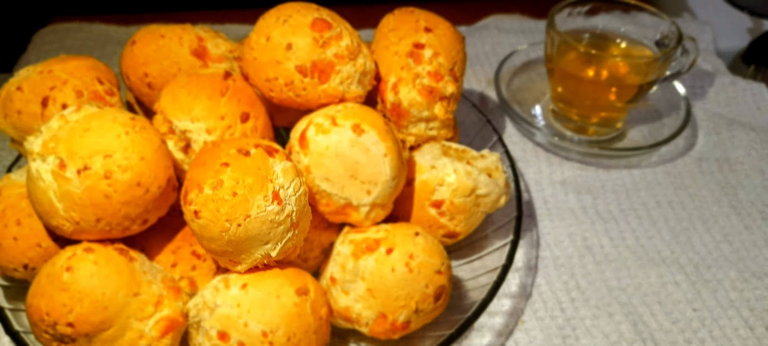
No puedo más que agradecer a Dios y a la vida, por traerme junto a mis hijos a este hermoso país. Gracias a su hospitalidad, he adquirido algunas costumbres que hacen que me sienta como si hubiese nacido aquí. Un gran saludo y mis cariños a todos los amigos que ahora alberga mi corazón. ❤️❤️

INGLES
My dear creative cooking friends! I made the famous chipás, a small round bread I ate for the first time here in Argentina. They're delicious, which is why they're so popular. What's more, they're available everywhere; in parks, sidewalks, shops, kiosks, even inside the subway, they're available for anyone who wants a snack.
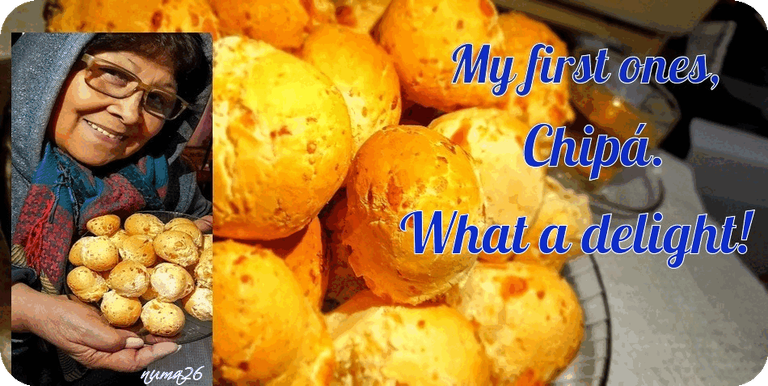
Chipás are small balls made with cassava or yuca flour, originally from Paraguay, but they are also regularly consumed in Argentina. Each country adds its own personal touch.
The name "chipá" is of Guaraní origin. It is said that the Guaraní people, in ancient times, prepared cassava dough with no other ingredients other than cassava.
It was simply a bread, made by the Guaraní indigenous people by grating raw cassava, which was then cooked wrapped in güembé (corn) leaves. However, when the Europeans arrived, butter, cheese, and eggs were added. So, an interesting fusion emerged, as what emerged was a delicious bread, which has become famous and highly sought-after due to its flavor.

Chipá Preparation
Ingredients:
250 g cassava or yuca starch
2 tablespoons butter
200 g cheese (yellow, Parmesan, or any other cheese)
3 eggs
Salt to taste

Making chipá is so simple, all it takes is mixing, kneading, shaping, baking, and finally, serving. This time, I made them in my air fryer. Just like the cover says, this will be the first time I've made these delicious little balls of cassava or yuca starch dough.



Then, make the balls. In this case, the result is 24 servings.
The balls shouldn't be too large because they'll grow when baked.

As I mentioned at the beginning, I was going to cook them in the air fryer. The time was 15 minutes and the temperature was 180 degrees.
As you can see, it's a simple recipe to make and really worth it because chipás have such a flavor that if we're careless, we can finish them all in one go.

You can eat them with the confidence that gluten won't make you sick because people with diabetes can eat them and they don't alter triglycerides. So my recommendation is not to overdo it, because that's where the danger lies. I warn you, they're addictive.


I hope you can replicate this simple recipe, as its simplicity means you can eat it more often. Try it and you'll see. Only four ingredients. Just like I made it in the air fryer, you can also prepare it in any oven, using the same cooking times.


In the image above, we can see from the outside, when the chipás are ready. Nine chipás could have been placed in each batch, because if I added more, they would probably stick together. We must also take into account the size of the dough balls. They should be small.

Now I present my harvest. It seems I achieved my goal. Eating some chipás without guilt. I would love for those reading this recipe to try it. I know you'll love them.


I can't thank God and life enough for bringing me and my children to this beautiful country. Thanks to its hospitality, I've acquired some customs that make me feel as if I were born here. Big hello and my love to all the friends I now hold in my heart. ❤️❤️


Las fotografias son de mi propiedad, capturadas con el Samsung A-12
- The photographs are my own, captured with the Samsung A-12
Traductor
Editor de portada
Editor de divisores
X



